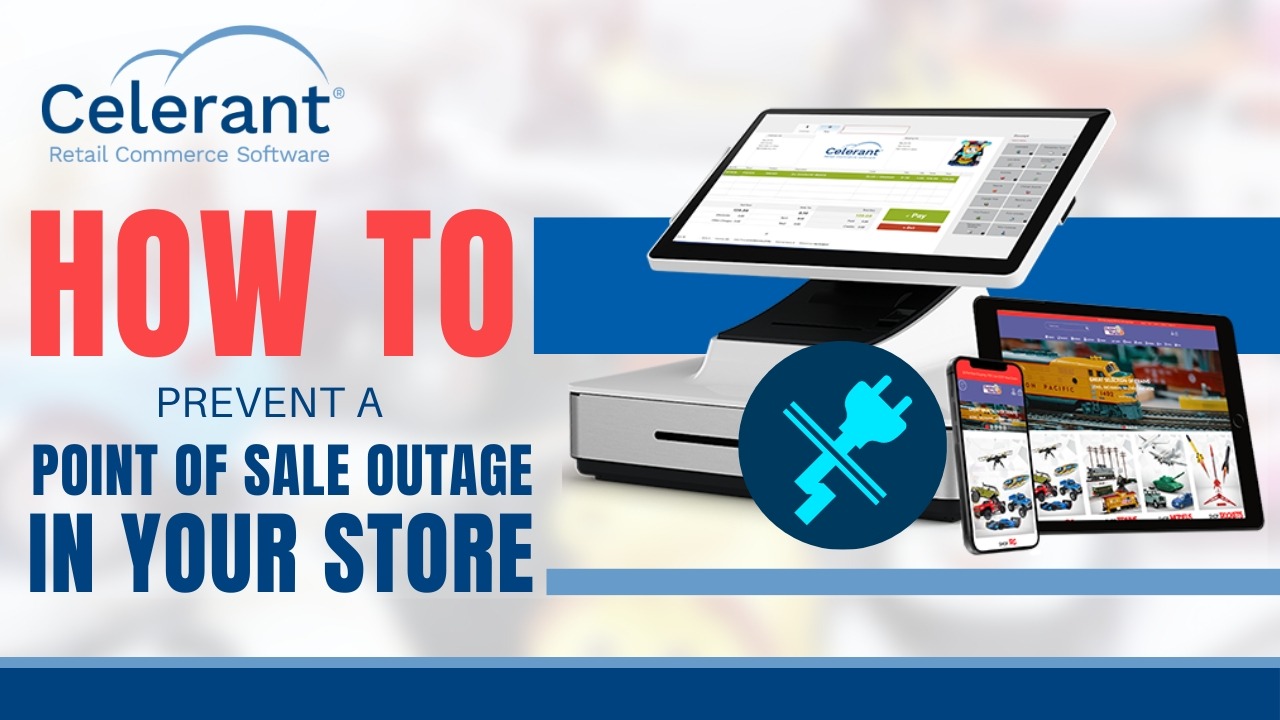Blog
How to Prevent a Point of Sale Outage in Your Store
June 19, 2019 / 4 minute read / By Robert Josefs

Blog

This past Saturday, for roughly two hours, Target’s cash registers stopped working. The outage prevented customers across the United States from making in store purchases. Many customers abandoned their carts and showed their frustration on social media, while others waited in the long slow-moving lines. Then, on Sunday, in an unrelated incident, Target could not process credit card payments at a number of stores for about 90 minutes. Both outages have since been resolved.
Absolutely! While you do need to be a box box retailer to have a nationwide outage, you don’t need to be as big as Target to experience similar issues. Both incidents were caused by technology used by many, if not most, retailers, regardless of size. According to Target, Saturday’s incident was caused by routine technical maintenance; and Sunday’s incident was caused by a technical glitch at a data center used by their payments services provider, NCR Corp.
Safeguard your point of sale server and protect your store’s data
There are a number of things you can do to safeguard your point of sale to ensure you can ring up sales without any hiccups. First, make sure the infrastructure your retail software is being hosted on has redundancy- whether that be with your software provider, a managed service provider, or in your own store. With redundancy, if your primary server fails or experiences excessive traffic, a redundant server can take its place or share the traffic load, allowing you to continue ringing up sales. There are a number of factors that determine the amount of redundancy you require, including the number of transactions and staff using the POS at the same time. In addition, frequent backups should be taken of your POS database to protect your historical data, including sales, customers and inventory data. If your server or software is no longer accessible, then at least you can restore your data on another platform. And finally, make sure any server/hardware updates or regular maintenance is scheduled during either your slowest hours or even after hours. That way, if anything unexpected happens or goes wrong, the impact will be less of an affect on your business.
Ensure you can ring up sales if internet goes down
An outage can also occur if your POS software is web-based, without local redundancy in your store, and internet goes down. As a solution, Celerant offers an ‘Always-On’ POS option to ensure you can ring up sales and access all POS capabilities including customer look-ups, pricing, promotions and more. With this option, your POS registers will still have connectivity through your in store server; when internet is restored, your in store server will update your main server and your POS registers will go back online. Learn more about Celerant’s ‘Always-On’ POS Software
Have a spare EMV device just in case
If you’re a small store with just one POS and payment processing device, and that device malfunctions- you won’t be able to ring up credit card transactions. It could be days before another EMV device is shipped, causing you to potentially lose sales. To prevent this from happening, we recommend you have a spare EMV device in your store. Stores with multiple POS registers should also have a spare device, especially during the holiday times when lines are typically longer. It’s a good idea to have a spare of any retail hardware required to keep your lines moving.
Know who to contact if there’s an outage
If there is an outage, you should know exactly who to contact during regular store hours, and weekends/holidays if you’re open. Make sure you have the most up-to-date contact details of your POS software provider, internet provider, payment processor, and anyone else your store relies on for support. Share this information with your staff.
Our final tip is to back-up your database and do so regularly. There is nothing worse than perfectly executing your plan, scrubbing and reformatting your data, testing followed by importing your consolidated records, to have your system crash and risk losing everything. Your database needs to be backed up at critical points of your implementation process in order to prevent these frightful situations.
 Explore four simple strategies to keep your first-time buyers coming back (with a little help from your… |
 How can retailers improve their email marketing metrics to achieve higher open rates, click through… |